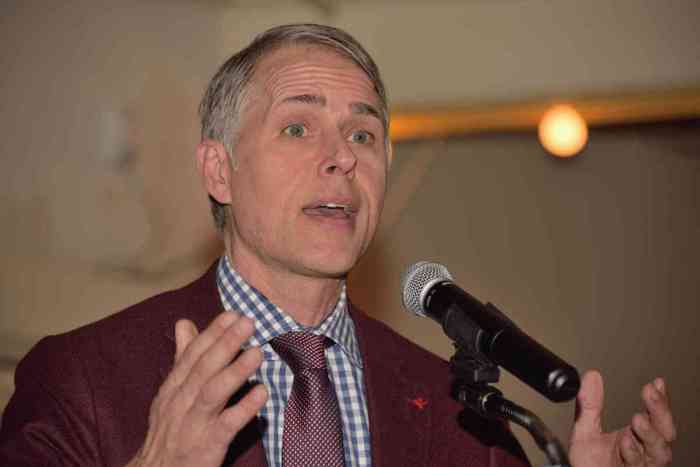The New York Times recently dedicated precious space to the follies of Israel’s public relations.
I’m not talking about Sarah Schulman’s “Israel and Pinkwashing,” which alleges that the Israeli government effectively leverages the gains of the LGBT community to have its way with the Palestinians, but rather a Times story about a clumsy Israeli government-sponsored campaign to cajole expatriates living in the US to return home with the slogan “You will always be Israeli.”
If you are after a model for the Israeli propaganda machine, I suggest you drop Schulman’s example and consider this foolish, amateur campaign that branded Israel to US-based Israelis like myself by implying that Jewish identity is unsustainable in the US.
A cursory assessment of this campaign’s execution is telling. Some among the staunchest pro-Israel leaders of American Jewry felt compelled to chastise beloved Israel for the arrogance, ignorance, and disrespect of America as well as her Jewish community. Sadly, even among her friends, Israel is viewed with very little true respect.
To get a fuller picture of Israeli hasbara –– Hebrew for “explanation,” often used to connote pro-Israel public relations –– consider the predictable routine that followed the American outcry. Prime Minister Benjamin Netanyahu did what he knows best –– he apologized, ordered the campaign to stop, but as with the implementation of the settlement freeze, the expat campaign is still somewhat alive.
Given the failing grade Israel earns in communications, how can anyone believe that such a nation can manipulate “the image of modernity signified by Israeli gay life,” to borrow Schulman’s words, to conceal its actions against the Palestinians?
The embarrassing truth is that Schulman gives too much credit to the Israeli government.
We Israelis elected the star of hasbara as our premier in the faint hope that this MIT graduate, who claims to know the American Declaration of Independence by heart and is reputed to recite it to his wife on romantic evenings out, would inject an iota of professionalism into our diplomacy, advocacy, communications –– however you wish to name the industry –– and put an end to the endless avalanche of embarrassments.
But even this PR specialist flattered our hopes; he might master English to perfection, but he only speaks when he has nothing to say.
Consequently, we have so much to talk about. Advocacy of Israel is a favorable topic of discussion among Israelis and American Jews, one of the very few concerns shared by both communities. Whether in newspapers or conferences, in academic or policy papers, we endlessly debate our communications strategy and how to improve it.
On occasion, public officials join in this popular pastime. Ido Aharoni, the former head of the Brand Israel project in the foreign ministry, now continues to talk about branding Israel in his position as consul general in New York.
I still haven’t found any intelligent design behind the Israeli chaos. The editors of the New York Times, I’m afraid, were too quick in running Schulman’s piece. The newspaper should have awaited minimal signs of life before calling for an end to the Machiavellian scheme.
But let me be clear –– as ludicrous as the allegations of a pinkwashing campaign might be, Schulman is correct in pointing out that increasingly many individuals and organizations, with the notable exception of the Israeli government, focus on the LGBT community in Israel –– and Palestine. If anything, the pinkwashing banner should have been used to describe this independent gay Israeli lobby, so to speak, under which we may loosely assemble all of us who believe that the gay prism is beneficial in helping people understand the complexity of Israel and conducive to raising interest in, even gaining sympathy for Israel’s reputation.
Who do I find with me in this pro-gay Israel club? A diverse, shall we say, crowd, indeed.
Thanks to the focus on this question, mainstream leaders of American Jewry have come out forcefully as gay-friendly, highlighting their commitment to LGBT inclusion. A Jerusalem Post/ Huffington Post article by David Harris, executive director of the American Jewish Committee, reasonably questioned the Times’ decision and reiterated AJC’s pro-gay posture.
Another famous member of the club is Michael Lucas, the adult film producer, whose highly-touted Israeli-themed video, “Men of Israel,” Schulman seemed to suggest, might achieve the milestone of prevailing on men to consume porn for its political content.
In my activism back home, I always maintained we should not discriminate against the Arab/ Palestinian chapter of the gay Israeli lobby. Arab/ Palestinian groups such as Aswat, Al Qaws, and its director Haneen Maikey, play an important role in Israeli LGBT activism, though the Times piece critically failed in identifying them solely as “Palestinian,” without clarifying that they are domiciled in Israel.
Of course, these are not members of the ad hoc gay Israel lobby intentionally, but in their public face they nonetheless engage the international community and fuel the liberal image of Israel through their objections to the Jewish state’s Palestinian policies. By their very existence and visibility, they assert the fact of an Israeli gay community and communicate its liveliness. Advocates may strive to draw attention to the right or left of an issue, but the world pays attention to the underlying premise of a question regardless from which side they consider it.
So, Schulman’s article contributes to an unrelenting focus on a useless question: Is Israel more pro-gay or more anti-Palestinian?
What does all this sound and fury yield? Let’s start with the lovely image of gay Tel Aviv, supposedly created by a massive surreptitious government marketing campaign. Let’s get the scale right. The Times made a fundamental editing error –– forgetting that Israeli newspapers are not committed to the same standards of accuracy. Schulman’s assertion that we’re talking about a $90 million dollar campaign funded by the city’s tourism board and the national tourism ministry is based on a piece in English on the Israeli news site Ynet. That figure is actually $90,000, as reported five months beforehand in Hebrew on the same website. Another number I’ve seen suggested an even more modest campaign.
To get a sense of proportion, it is worth noting that $90 million is just about the overall annual budget of the tourism ministry, the lion’s share of that spent on salaries and office expenses –– with about a million spent on the personal protection of the tourism minister. Courtesy of the Times, however, a spate of other newspapers worldwide have now cited the erroneous number as a fact, a misstatement that is only latest contributor to the burgeoning mythology of Israel.
What the government’s meager budget would not allow, Schulman has provided gratis. The image of a wonderfully gay Tel Aviv is blossoming in the jurisdiction of the New York Times, fertilized by the controversy. Newspapers and blogs are now busy discussing the merit of a public relations strategy based on that unquestionable premise of gay Israel. Fittingly. the articles are accompanied by easily-Googled pictures combining gay, Jewish, and Israeli symbols and pageantry. For better or worse, the image is firmly embedded in our public mind.
Unfortunately, an important nuance is lost. The visibility, power, and confidence of the Israeli LGBT community do not imply official recognition by the nation’s authorities, a goal that is the fundamental aim of civil engagement and activism in the US.
Gay tourists don’t flock to a destination because of gay rights –– unless they travel to get married, which they can’t in Israel –– and evidently a lively gay scene may excitingly thrive despite lack of formal recognition (think of the other sexy gay destination in the region –– Beirut). True, all other things being equal, tourists do prefer to vacation in gay-friendly locations. But I hardly need to explain to New Yorkers that social acceptance and gay-friendliness don’t automatically translate into civil rights.
Recall the shooting in the Tel Aviv office of Aguda, Israel’s LGBT Association, in the summer of 2009. The tragic event has had no lasting effect either on tourism or government policies. Israel is a great place to be gay, as long as you don’t need the government.
It’s fabulous that Benjamin Netanyahu feels comfortable enough to come out mentioning gays in the US Congress, but at home he crawls back into the closet. He discreetly visited the Aguda after the shooting on the condition that his time there would be closed to the press.
Significantly, members of Netanyahu’s cabinet know full well they can be openly anti-gay without being censured by the premier or any of the liberal members of the executive. Respect for the LGBT community is not part of Israel’s public morality.
Contrast Netanyahu’s visit to the Aguda with a trip there last month by US Ambassador Dan Shapiro. The ambassador did it the American, not the Israeli, way, on the record, signaling a proper message of recognition by the authorities. Regrettably, only the American ones.
Shapiro’s professional hasbara may offer less sizzle than the Israeli-Netanyahu style. But isn’t the approach modeled by the American ambassador more respected because it’s truly respectable?
Yoav Sivan, an Israeli journalist, is a visiting scholar at NYU. His website is YoavSivan.com.

































